AutoCamp Blazes New Trails
Santa Barbara–Based Hospitality Company Opening Several New Properties
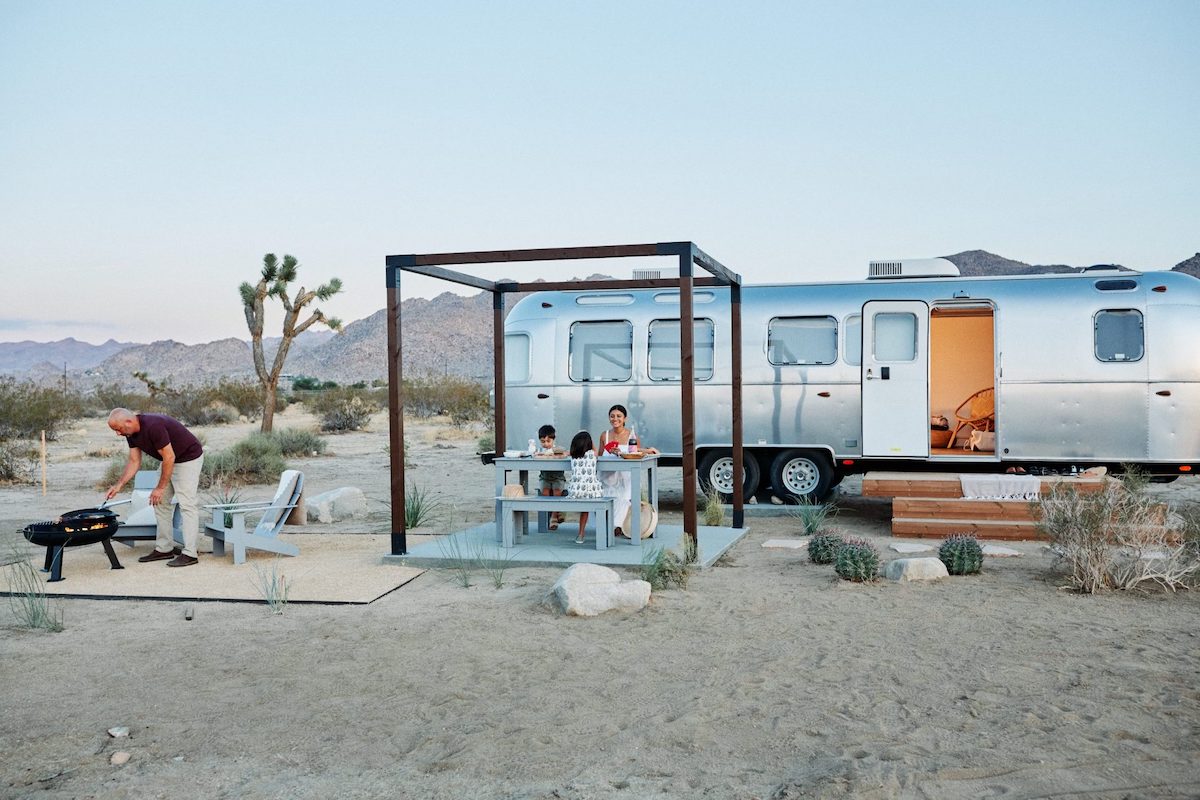
One of the most interesting independent brands to emerge in the domestic hospitality industry over the last decade started right here in Santa Barbara as a “happy accident.” AutoCamp’s founder and CEO, Neil Dipaola, said that when they purchased a small urban RV park on De la Vina Street back in 2012, they were hoping to “create a new paradigm for affordable housing.” While the experiment did not achieve that specific goal, it was a smashing success in other ways and started the company on an exciting, unexpected path. Today, AutoCamp has grown into a thriving boutique chain of outdoor lodging properties with a growing national footprint.
When I spoke to Dipaola recently to learn more about what is on the horizon for the company, the conversation started with their local origin story. It was just around the time that the tiny-home trend was taking off. Dipaola and his partners thought that, if done well, renovated mobile homes could appeal to young professionals and provide a solution to the community’s affordable housing shortage. After purchasing the De la Vina property, they hired a local architect, Matthew Hofmann, to renovate Airstream trailers that would occupy the vacant spots. While intended to be for long-term renters, locals walking by got curious and asked to book stays for their visiting relatives and friends. “Being the entrepreneurs we were, we said ‘sure,’” Dipaola recalled. “We had other folks walk by who wanted to staycation because they’d always wanted to see what the inside of an Airstream looked like.”
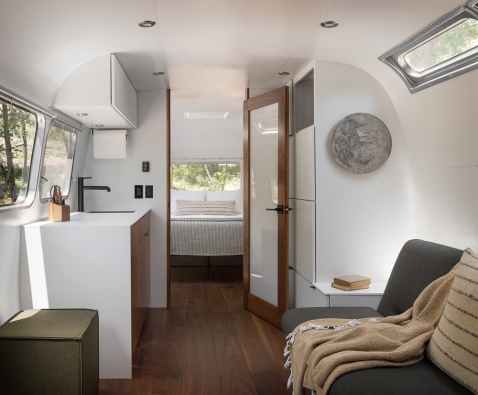
Buzz grew quickly and organically. It was the early days of Airbnb and many Americans were discovering the joys of vacation rentals for the first time. “Our six Airstreams on De la Vina got really popular, and we set up a website,” Dipaola said. “Before we knew it, we were taking interviews with the L.A. Times and Sunset Magazine, and got all this press about our little miniature airstream hotel on De la Vina.”
One day he got a call from the CEO of Airstream, who was keen to work with them, saying they had not gotten that much press in 50 years. “Fast-forward a few years, and Airstream is a partner and investor in the company,” Dipaola said. AutoCamp is Airstream’s exclusive lodging and hotel partner and they have worked very closely together to refine the AutoCamp guest experience. “We’ve really created the ultimate hotel module Airstream,” Dipaola said of their custom manufacturing arrangement. “We call it the Airstream Signature Suite. It’s really anything and everything you could want in a hotel room — it looks more like a room in the St. Regis hotel than it does any type of RV you’ve probably seen.”
In late spring, I experienced the luxury of a Premium Airstream Suite firsthand at AutoCamp Yosemite. From the comfortable queen bed, earthy Ursa Major bath products, and spacious rain shower with treetop views to the well-stocked kitchenette and private patio with a fire pit, it was glamping at its finest.
Each property is anchored by a mid-century-modern-style clubhouse with cozy communal indoor spaces and inviting outdoor gathering spots. At Yosemite, amenities included a café, swimming pool, and a general store filled with gourmet goods (their s’mores kits are a must-try for the marshmallows alone!), outdoor living accessories, and souvenirs. Complimentary coffee and breakfast were also provided in the clubhouse, which I appreciated upon return from my very early, very chilly morning drive to catch the breathtaking sunrise over Yosemite Valley from the Tunnel View.
Sign up for Indy Today to receive fresh news from Independent.com, in your inbox, every morning.
In addition to the Yosemite property, which is located about an hour outside of the national park and very close to Mariposa, AutoCamp has locations in the Sonoma wine country town of Guerneville on the Russian River (their first true flagship) and Cape Cod, Massachusetts, which opened early 2021. Joshua Tree debuted in December, and 2022 will see the opening of locations in the Catskills just outside of Woodstock, New York, as well as Zion National Park in Utah.
Dipaola said that they have 15 other new properties in the works. “You’re going to see a lot more AutoCamp locations announced here in the relatively short-term future throughout the country.” They are being very deliberate and strategic about expansion and aim to have locations within a half day’s drive of the top 25 major metro areas across the U.S.

He also shared that 30-40 acres is the optimal amount of land needed to create what has become the quintessential AutoCamp experience. That is part of the reason why the “prototype” on De la Vina was eventually reverted back to affordable housing. They would have needed more space and did not want to displace any of the original tenants — they have since sold the property altogether. That said, when I asked Dipaola if he had a dream destination not currently in the pipeline, he did not hesitate to say, “to open a purpose-built AutoCamp in Santa Barbara!”
It makes sense that a group of environmentally conscious individuals based in Santa Barbara have created such a successful outdoor lifestyle brand. The AutoCamp team is ultimately on a mission to make the outdoors more accessible for people, whether they are novice glampers or experienced adventurers, and to do so sustainably. “AutoCamp is really a way we can share our passion for the outdoors with people in a way that is simple, easy, and approachable,” Dipaola professed. “Before AutoCamp, we were trying to build net-zero, green housing to protect the environment, take the strain off natural areas, and to conserve land for wildlife.” He elaborated, “As we reluctantly fell into hospitality, the passion for the outdoors hasn’t changed. In fact, it’s grown stronger.”
Their experiential product has been resonating with travelers since day one, and the pandemic sparked an explosion in demand for nature lodging and social-distancing-friendly, wide-open spaces. So, it is quite fortuitous that AutoCamp’s expansion plans include developing a portfolio of brands, starting with introducing a more affordable line of outdoor lodging. “We’re interested in exploring low-cost, truly accessible outdoor experiences and how we can make the outdoors more inclusive, to pull down some of the barriers people might have: not having the right equipment, not having the right experience, not being inclined to be outdoors,” Dipaola shared. “We want to make everyone feel welcome and do so in a way that builds in a lot of respect and reverence for the environment,” he added. “Hopefully all of our guests will go home with memories and experiences that will lead them to be better stewards of the environment and come back to one of our other properties so they can have a different experience in a different environment and develop a lifelong love of the outdoors.”
That sounds like an admirable, timely mission to me, and I look forward to championing their continued success and innovative hospitality best practices in the years ahead. Meanwhile, I think it is time to plan my next trip to the desert. AutoCamp Joshua Tree is already taking reservations.
Support the Santa Barbara Independent through a long-term or a single contribution.

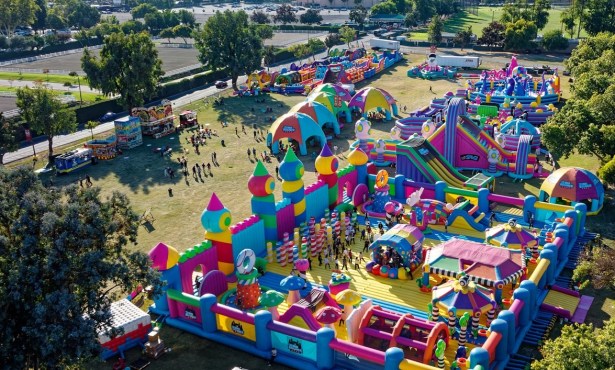
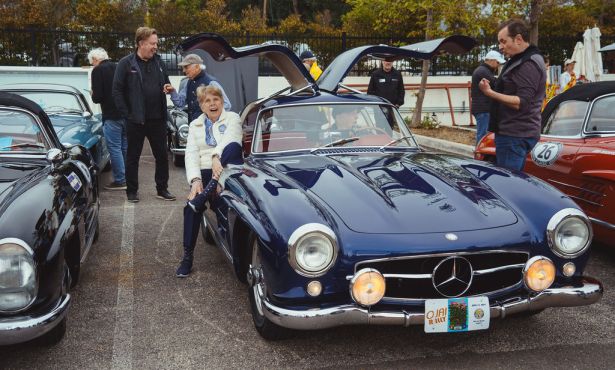
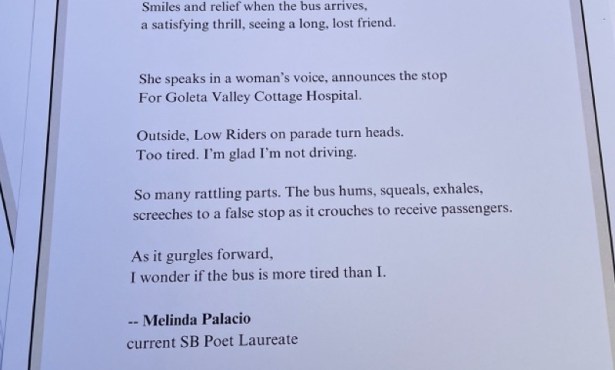
You must be logged in to post a comment.